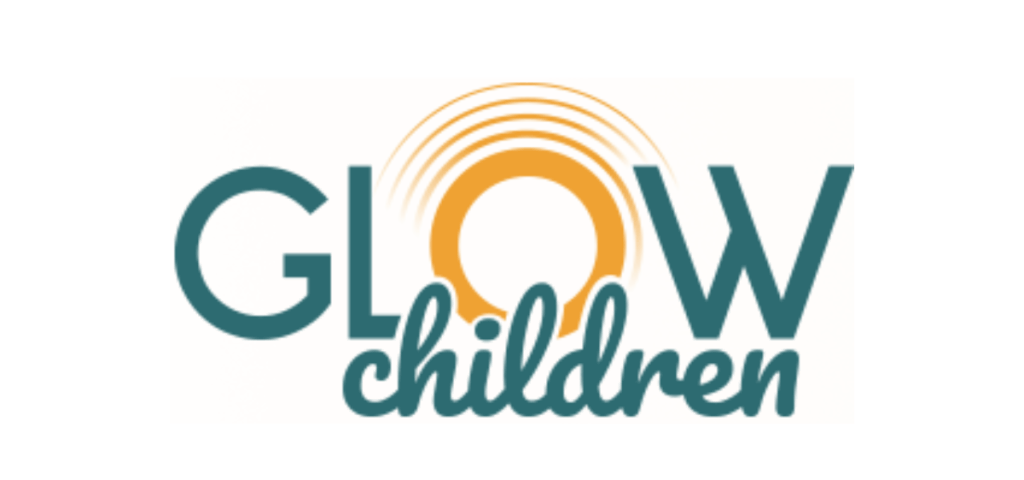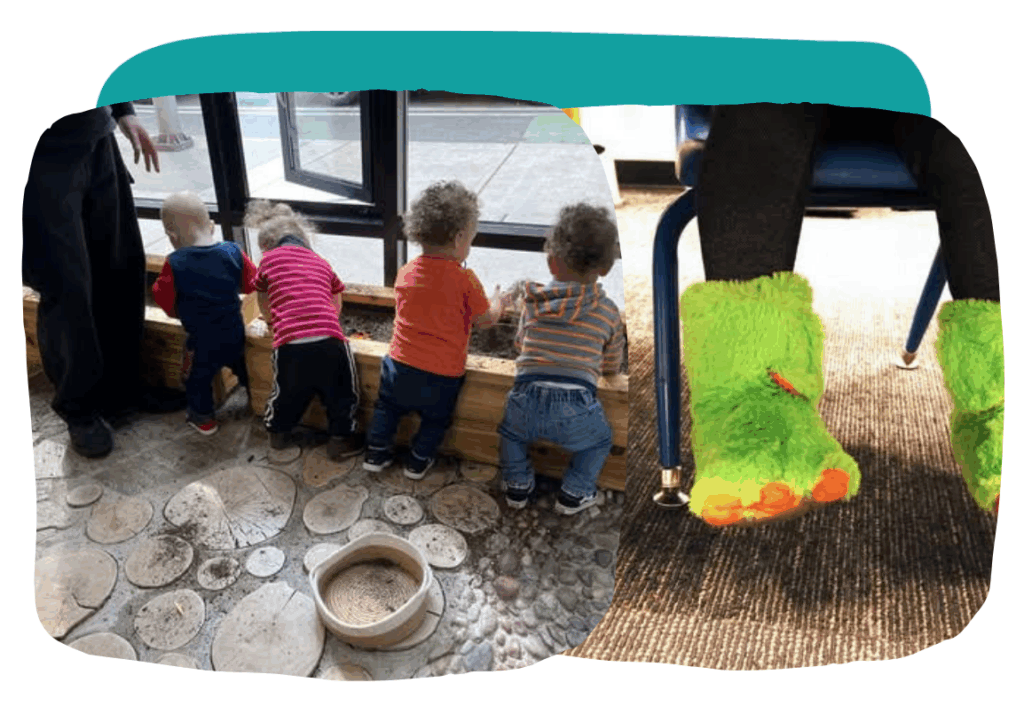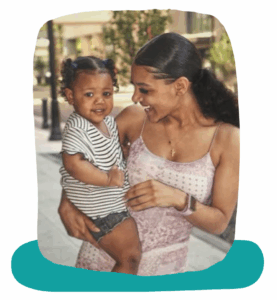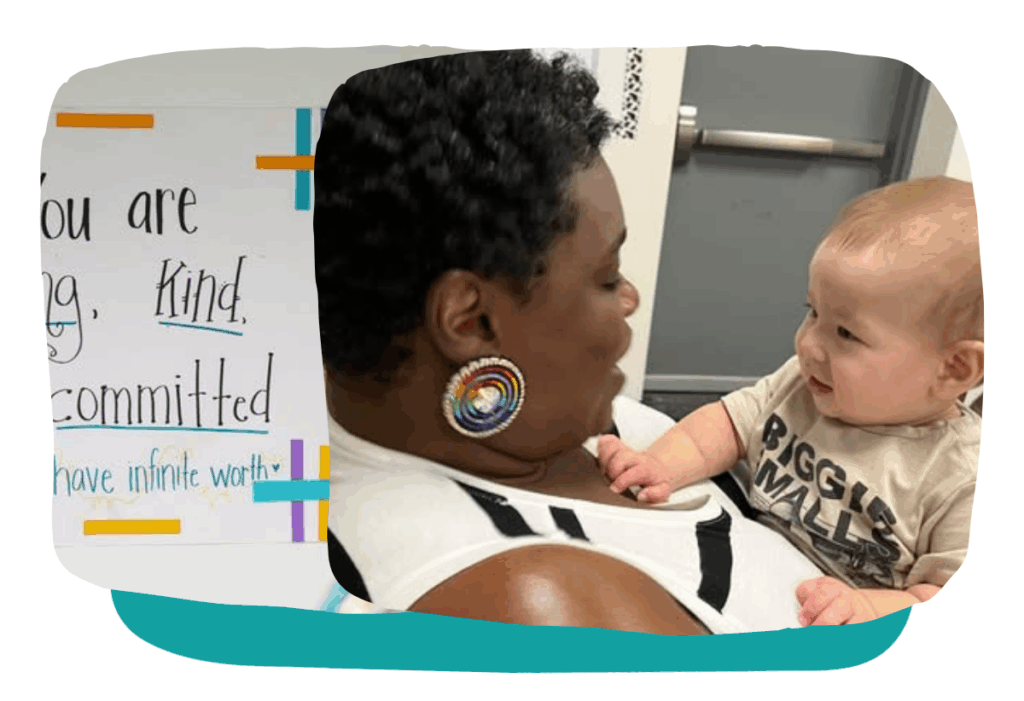
By Nurture Connection
Katie Jessop, MA, a Registered Circle of Security Parenting Facilitator and former licensed mental health counselor (LMHC) in Spokane, Washington, clearly recalls the epiphany she had when she first heard the term “early relational health.” She realized that her mental health therapy work fit into a larger framework that connected experts across fields. “I remember thinking, ‘Oh, this is the underpinning for all the things that we’ve been trying to underpin.’ We now have this platform, and we can all bring our different bits. It all makes sense within the ERH structure.”
Jessop is the cofounder, former executive director, and current community outreach program director of GLOW Children Early Learning Center (ELC). In the beginning, GLOW provided a safe and healthy early education program primarily for children whose parents attend Lumen High School. GLOW Children and Lumen High School were both created at the same time and with the same purpose: to serve teen parents. Since then, GLOW has expanded its mission to serve other families from the broader community, many of whom have extra barriers to accessing high-quality early learning centers. GLOW Children ELC and Lumen High School have the shared mission of providing safe and healthy early education for children and often work together for the best interests of the community.
Early Relational Health (ERH), through the lens of the Circle of Security model (which helps caregivers meet young children’s attachment needs so they feel safe), infuses the DNA of both organizations. As Jessop explains, “Circle of Security and the attachment research behind it go so deeply down into our bones that it just is.”
How did the GLOW-Lumen team achieve this? In addition to applying Jessop’s deep expertise in Circle of Security and attachment research, they focused on two approaches: 1) fostering a thoughtful program design process that includes many community partners, and 2) implementing a strong set of core values that the team uses to evaluate all decisions, from programming to new hires.

Growing and Glowing: Toddlers in sensory play
Valuing the Insights of Lived Experience
Key to success was taking time to first establish a diverse community design team, including teen parents, school counselors, school administrators, teachers, and business leaders. As Jessop says, “if you don’t have a wide variety of knowledge, including the lived experience of the people you’re serving, you’re going to miss glaringly obvious things that will either make or break your program. This is one of the easiest things to put in place to fix things ahead of time.”
The team continues to prioritize elevating the voices of the people being served. The GLOW board of directors, administration, and teaching staff are roughly 50 percent Black, Indigenous, and people of color (BIPOC) and 25 percent former teen parents. Maintaining this diversity requires intentionally connecting with people through community events and other nonprofits. (This approach is similar to Nurture Connection’s commitment to parent partnership and parent wisdom.)

[Above]: a Lumen graduate with her daughter, who attended GLOW as a toddler and preschooler. This mom also had a paid internship at GLOW.
Designing for Relational Health Based on Core Values
To promote relational health at all levels, including for staff and the families served, the team established five core values. Explains Jessop: “Every policy, every procedure, every hiring process — everything we do goes through the lens of our five core values. And we always put humans first.”
Core Value 1: Belonging
At GLOW, “belonging” means that everyone matters and everyone can contribute. Determining if something meets this core value involves reflecting if it makes people feel taken care of and safe no matter who they are and when they show up.
For example, GLOW prioritizes getting to know clients. “When I was executive director, I wanted to be able to greet every parent and child by name as they came through the door,” recalls Jessop. “I wanted to know about their lives and help them feel seen and cared about. And in doing things that way, I also got love and joy and connection from those interactions. It also had a wonderful side effect of being able to lean into our relationship when we had to discuss something more difficult, such as a fee or an issue in the classroom. It also means that when they have a need, they’re more likely to come to a place that makes them feel warm and seen.”
Also, to meet the wider community’s need for childcare, GLOW broadened its services beyond the high school. It is now one of the larger childcare centers in Spokane, serving 50 percent current and former teen parents and 50 percent families who are largely BIPOC, low income, have children with special needs, and/or are from refugee and immigrant populations.
At the organizational level, GLOW is structured so that teams take care of each other. Explains Jessop: “It’s the board’s job to support the administrators, the administrators support the teachers, the teachers support the children — if we all do our part, then we’ll all be taken care of.”
Core Value 2: Discovery
“We are invested in everybody learning together,” says Jessop. “We want to create experiences and relationships to help us learn from within and from tenacity, because this is hard work.”
At Lumen High School, students are supported with a learning structure that also prioritizes relational health. Students do project-based learning during the school day but don’t receive homework so they can spend time with their child after school.
For staff, GLOW works to create space for everyone to feel comfortable asking for help, reflecting on how they feel, and having hard conversations in a constructive way. Meetings include time to check in to find out how everyone is doing as a person and if they need support.
Core Value 3: Flexibility
Having a flexible structure is important for GLOW to meet individual needs and help each person develop. “You cannot work with children and not be flexible,” says Jessop. “We understand our boundaries, and then within that, we use as much flexibility as possible.”
For example, GLOW is located downtown near a transit hub, which gives younger children access to more walking field trip options like the library, multiple playgrounds, and a science center. Older children have the opportunity to learn to use the public transportation system with teachers, to explore all over the area. Basics like diapers and formula are provided if needed. Also, an on-site clinic reduces missed school time for medical appointments.
Core Value 4: Tenacity
“Childcare, education, being a teen parent, starting nonprofits are all hard work,” says Jessop. “You have to be willing to keep working through and keep finding a way.”
GLOW meets each person where they are and supports the hard work of failure and growth. This value manifests in GLOW’s Pathways to Leadership program for staff. In one example, GLOW hired a preschool teacher to work as an administrator. Explains Jessop: “She was a teen parent; she’s a person of color. She is an incredible advocate with valuable lived experience and has a strong desire to learn new skills to keep helping families like her own. Why wouldn’t we want someone like her to be on our team and eventually leading our team? It’s a win-win for all of us. The plan is that after a year or two, she will become the program director. We do it this way so staff can develop the skill sets they need.”
Core Value 5: Empowerment
Supporting clients to make decisions that are right for them is essential to how GLOW operates and starts with enrollment in childcare. “At GLOW, we encourage healthy attachment by letting parents choose when to put their child into care,” shares Jessop.
While state laws ensure teens receive a month of maternity leave from school, GLOW will hold a childcare spot for additional time — anywhere from one to four months — while they work together with the parent on a transition plan. “The parent can keep their child with them at school to keep that skin-to-skin contact, encourage breastfeeding if they want, but really just to stay bonded to their child,” says Jessop.
Lumen High School also offers programs such as Life After Lumen because “we don’t want them to have to choose between being a student and being a parent and a person.” Students are paired with a mentor and can apply for paid internships in the community.
At the organizational level, GLOW empowers teachers to participate in the hiring process. “We put candidates in classrooms, and then we ask the teachers if they want to bring that person onto their team,” says Jessop. “The team decides what’s best for the team.”

[Above]: a GLOW community supporter with a GLOW staff child in the Roots classroom
Being “Relationship-Forward” Brings Big Benefits
Jessop describes promoting relational health as being “relationship-forward” and preventive. It’s a combination that she believes clearly pays off over time.
“The more healthy attachment systems you have with people, the healthier your brain is, and the better things go,” says Jessop. “We introduce people to trusted resources so that they have multiple connections. We want to build a huge network of Mr. Roger’s helpers, and we want to be part of that network.”
Cultivating the relational health of clients and staff is hard work, and Jessop depicts it as a journey that doesn’t end. “There’s beauty in that,” she say. “Everything about being a human who feels deeply and does deep good work has sharp edges — and joy.”
This blog post is part of Nurture Connection’s “ERH in Action” series of listening and learning sessions. Our network is full of meaningful examples of people and organizations promoting ERH in their daily lives and work. Our “ERH in Action” series highlights and uplifts stories from various fields to share learnings, challenges, and bright spots in the movement.